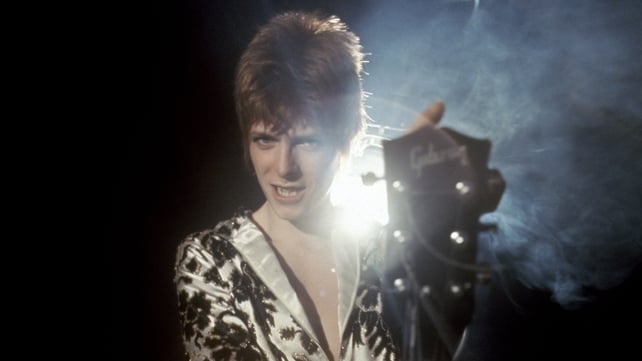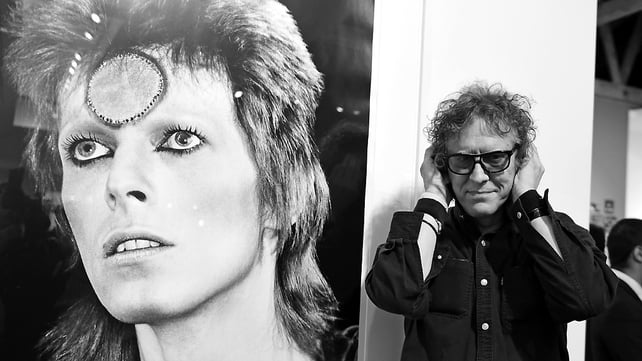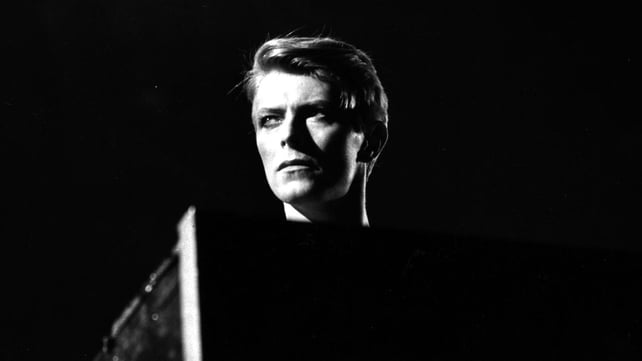Before the world became obsessed with assigning a label to every faucet of a person’s sexual identity, there was Bowie. Before sexual fluidity, gender neutrality or gender fluidity, there was Bowie.
David Bowie, who died yesterday at the age of 69 after an 18 month illness with cancer, famously ‘came out’ in an interview with Melody Maker magazine in 1972 in which he told journalist Michael Watts: "I'm gay, and always have been, even when I was David Jones."
In 1967, the Sexual Offences Act decriminalised homosexual acts between two men over 21 years of age in private in England and Wales but the Act did not extend to Scotland, Northern Ireland, the Channel Islands or the Isle of Man, where all homosexual behaviour remained illegal. Homosexuality was only decriminalised in the Republic of Ireland in 1993. The US’s laws on homosexuality varied from state to state but in 1972 the only state to have repealed its ‘sodomy laws’ was Illinois and it would be another year before the board of the American Psychiatric Association would vote to remove homosexuality from its list of mental illnesses.

David Bowie’s 1972 statement was important. But perhaps not as important as the glib answer he had for Michael Watts during that same interview when Watts enquired as to why he wasn’t wearing a ‘woman’s dress’ on that particular day in Bowie’s publisher’s office on Regent Street. "Oh dear," he replied, "You must understand that it's not a woman's. It's a man's dress."
Now that’s lateral thinking. That’s an answer that will challenge even the most open of minds about their ingrained attitudes towards sexuality. Of course, it’s so simple; it’s a man’s dress.
As we can now see with hindsight, ‘gay’ was simply a term that the mainstream media could understand it and use it in a context that the wider public could digest. Over the decades, David Bowie would ‘come out’ many times as bisexual, homosexual, heterosexual. At the end of the day, the man was simply a sexual being who didn’t feel the need to pigeonhole himself – even if the media had a fixation with doing just that on his behalf.

As he told Jeremy Paxman in an interview in 2000, “I’ve always been a very curious and enthusiastic person, from when I was a teenager; and it really wasn’t up to me to try and identify exactly what that meant. I just had to accept that I was a person who had a very short attention span, I would move from one thing to another quite rapidly when I got bored with the other, and I became comfortable with that. I didn’t try to identify myself or ask myself who I was. The less questioning I did about myself as to who I was, the more comfortable I felt.”
Despite the fixation that the world has had with David Bowie’s sexuality and image, his honesty and openness – his refusal to conform – made sure that he always managed to transcend speculation; something that even pop and rock stars of today don’t escape. From Cara Delavigne to Miley Cyrus to Niall Horan, most of today’s biggest pop artists are still subjected to the ‘are they/aren’t they’ treatment by the tabloids. It’s heartening to see that many of them aren’t conforming to a fervently heterosexual image prescribed by their media teams in order to keep their teenage fans hoping and wondering ‘maybe someday...’, but I can’t help but notice that it seems more comfortable for today’s young starlets to be accepted as gender fluid, gay or bisexual than it is for young male stars. Perhaps a reminder that the pop music industry is still very patriarchal and still attempts to skew its stars’ images largely to conform to male fantasies. But I digress.

I identify as a straight woman and I’m comfortable with that; my struggles with my gender identity and sexual identity were largely limited to those curious and confusing teenage years that most people experience. After that it was pretty cut-and-dry. So I can’t speak with any great authority on the influence that Bowie had on me personally coming to terms with my sexuality or gender. What I can speak on with authority is the fact that, as a mother of two sons, I know that I owe a debt to David Bowie for challenging preconceptions of what it means to be ‘a boy’, and what it means to be ‘a girl’ in our world. I know that when I tell my children, “be who you are; be who you want to be,” it’s because of people like David Bowie that I can say that to them with the knowledge that the world is a step further to accepting people for who they are. As Bowie said, “I'm not outrageous. I'm David Bowie.”


